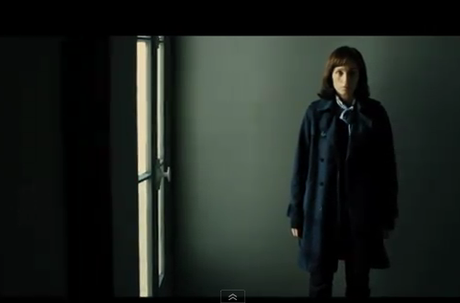
Kristen Scott Thomas in Sarah's Key.
Adapted from the novel Elle s’appelait Sarah by Tatiana de Rosnay, Sarah’s Key follows the story of a present-day journalist’s investigation into the notorious Velodrome D’Hiver Roundup in Nazi-occupied France in 1942, interwoven with the story of a young girl who survived it.
Directed by Gilles Paquet-Brenner, the film’s narrative comes from the dual perspectives of American journalist Julia (Kristen Scott Thomas) and 10-year-old Sarah Starzynski (Mélusine Mayance), who, along with her family, is taken by the police to the Velodrome d’Hiver. A dark chapter in the story of Nazi-occupied France, the Vel d’Hiver Roundup saw French police arresting more than 13,000 men, women and children and holding them for days in appalling conditions before transporting them to concentration camps. Sarah locks her younger brother Michel in cupboard to protect him from the police, but soon realises that this may be more dangerous than being taken by the authorities.
A painful subject – but does Sarah’s Key manage it well? Not so much, say some critics.
- Déjà vu. Metro called Sarah’s Key “a massive experience of déjà vu for anyone who saw the exact same atrocity dramatised very similarly in 2010′s The Round Up.” Nicholas Barber from The Independent acknowledged, “[S]ome scenes are so similar that they could be swapped from one film to the other without anyone batting an eyelid” but added that the narrative in Sarah’s Key is “a much more ambitious, far-reaching story”. It’s not, however, a flattering comparison: “At first the film’s strength, ultimately it’s the opposite,” he concluded.
- This is Sarah’s Story. “It is saved from dour didacticism by the power of the central child’s performance,” explained Chris Tookey, writing in The Daily Mail, continuing, “[T]he flashbacks are so much more powerful than the present-day story that the film does feel broken-backed.” The Telegraph agreed, noting, “The young Mayance, in the best performance by far, pulls you into her terror and distress.”
- Divided on Scott Thomas. Angie Errigo said in the Metro, “Scott Thomas is an actress who is reliably affecting and compelling, although the contrivances of the modern-day soap operatics veer into the mawkish when contrasted against the real events depicted in the story.” Evening Standard concurred, noting, “Scott Thomas is left adrift in a part that doesn’t quite match her abilities.” However Peter Bradshaw at The Guardian disagreed: “Kristin Scott Thomas gives it weight.”
- “A bit sick.” The episode involving Sarah’s brother locked in the cupboard did not always evoke pathos. The Independent felt that the idea was “ a bit sick”. “Aren’t the historical facts dreadful enough without a phoney race against time?” The Telegraph agreed, complaining, “We’re kept on tenterhooks for a good hour about what happened to the boy, which is both the film’s only workable dramatic hook and a grimly tasteless suspense device.” The film, the paper concluded, was painful – all the wrong ways.
- Not uplifting, but definitely moving. Some critics, however, found the film’s treatment of a very dark subject a welcome departure from other Holocaust and WWII films that somehow try to rework was is essentially a story of loss into something more uplifting. Mick LaSalle, writing at The San Francisco Chronicle, lauded, “Sarah’s Key, set in modern times but with flashbacks to the war years, refuses to crank up the soundtrack and make audiences feel better. But it does provide audiences with the satisfaction of seeing and hearing an important truth expressed, and that’s better than making you feel good. That’s making you feel something.”

